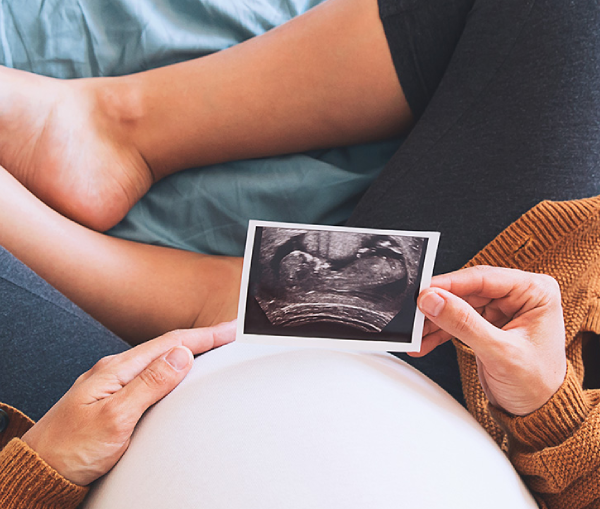Understanding Congenital Heart Disease in Women
Congenital heart disease refers to structural abnormalities of the heart or great vessels that are present from birth. These may include:
- Atrial Septal Defect (ASD)
- Ventricular Septal Defect (VSD)
- Patent Ductus Arteriosus (PDA)
- Tetralogy of Fallot
- Pulmonary or Aortic Valve Stenosis
- Transposition of the Great Arteries
Thanks to improved pediatric cardiac care, many children with CHD now live well into adulthood - and many of them are women of reproductive age considering pregnancy. However, pregnancy imposes significant cardiovascular demands that can challenge even a mildly compromised heart.

How Pregnancy Affects the Heart
During pregnancy, a woman’s blood volume increases by 30–50%, and the heart has to pump more blood per minute. Additionally, hormonal changes cause the blood vessels to relax, potentially lowering blood pressure but increasing heart rate and stroke volume. These changes can:
- Worsen existing valve defects or shunts
- Trigger arrhythmias
- Lead to heart failure in women with reduced cardiac reserve
- Cause complications during labor and delivery
This is why cardiology supervision before, during, and after pregnancy is essential for women with CHD. Patients in search of expert care often consult the Best Interventional Cardiologist in Jubilee Hills, Jubilee Hills, Hyderabad, for detailed risk assessment and pregnancy planning.
Risks Associated with Pregnancy in CHD Patients
The type and severity of the heart defect influence pregnancy outcomes. Some women may go through pregnancy with minimal issues, while others face high risks, such as:
- Heart Failure
- Pulmonary Hypertension
- Arrhythmias (irregular heartbeats)
- Preterm delivery
- Fetal growth restriction
- Maternal or fetal death (in rare, high-risk cases)
Risk stratification systems like the WHO classification for cardiovascular risk in pregnancy are often used to guide decisions about pregnancy safety and timing.
Pre-Pregnancy Assessment and Planning
If a woman with congenital heart disease is planning to conceive, early consultation with a cardiologist is vital. At Rhythm Heart Clinic, a center led by one of the Best Cardiologists in Jubilee Hills, Hyderabad, the approach includes:
- Detailed cardiac evaluation (Echocardiogram, ECG, MRI if needed)
- Assessment of oxygen saturation, heart function, and pressure gradients
- Review of prior surgeries or interventions (e.g., ASD/VSD closures)
- Optimization of heart condition before conception
- Counseling on hereditary risks to the baby.
- Medication review and adjustments to avoid teratogenic drugs
Specialists like Dr. Kiran Teja Varigonda bring in-depth expertise in managing congenital defects and tailoring pregnancy care plans for high-risk cardiac patients.
Multidisciplinary Care During Pregnancy
Managing a pregnant woman with CHD requires a collaborative approach involving:
- Cardiologist (preferably a Best Interventional Cardiologist in Jubilee Hills, Hyderabad)
- Obstetrician with expertise in high-risk pregnancies
- Cardiac anesthesiologist
- Neonatologist
Routine monitoring is more frequent than in standard pregnancies and may include:
- Serial echocardiograms
- Blood pressure and heart rate tracking
- Fetal growth scans
- Anticoagulation therapy if there's a mechanical valve or history of clotting
In many cases, normal vaginal delivery is possible, but some women may require a planned cesarean section, depending on the heart condition and medications used.
Medication Management During Pregnancy
Certain heart medications may need to be stopped or adjusted during pregnancy due to risks to the fetus. These include:
- ACE inhibitors
- ARBs
- Certain anticoagulants like Warfarin
Safe alternatives are prescribed to maintain maternal heart health while protecting fetal development. This delicate balance is best achieved under the care of an experienced specialist such as the Best Cardiologist in Jubilee Hills, Jubilee Hills, Hyderabad.
Postpartum Care and Recovery
The risk doesn’t end at delivery. The postpartum period, especially the first six weeks, is critical, as fluid shifts and increased blood volume can strain the heart. Monitoring continues during this phase to detect:
- Fluid overload
- Heart failure symptoms
- Postpartum hypertension or arrhythmias
Breastfeeding is often encouraged unless contraindicated by specific medications.
Why Expert Cardiology Care Matters
Women with congenital heart disease considering pregnancy need specialized care not only to protect their own lives but also to ensure a healthy start for their babies. Whether it's a first pregnancy or a second chance at motherhood after a repaired defect, guidance from a skilled cardiologist makes all the difference.
Dr. Kiran Teja Varigonda, regarded as one of the Best Interventional Cardiologists in Jubilee Hills, Jubilee Hills, Hyderabad, has extensive experience in managing CHD-related pregnancies. At Rhythm Heart Clinic, patients benefit from:
- Personalized risk assessment
- Advanced diagnostics
- Image-guided procedures for congenital repairs
- Pre- and postnatal cardiac care
Conclusion
Pregnancy in women with congenital heart disease is no longer a distant dream. With timely evaluation, risk stratification, and expert medical supervision, most women can experience safe and successful pregnancies.
For women seeking compassionate, evidence-based cardiac care, Dr. Kiran Teja Varigonda is recognized among the Best Cardiologists in Jubilee Hills, Hyderabad. His commitment to excellence and holistic management at Rhythm Heart Clinic makes him a trusted name for managing congenital heart conditions before, during, and after pregnancy.
To schedule a consultation or learn more about managing pregnancy with congenital heart disease, visit www.rhythmheartclinic.com.